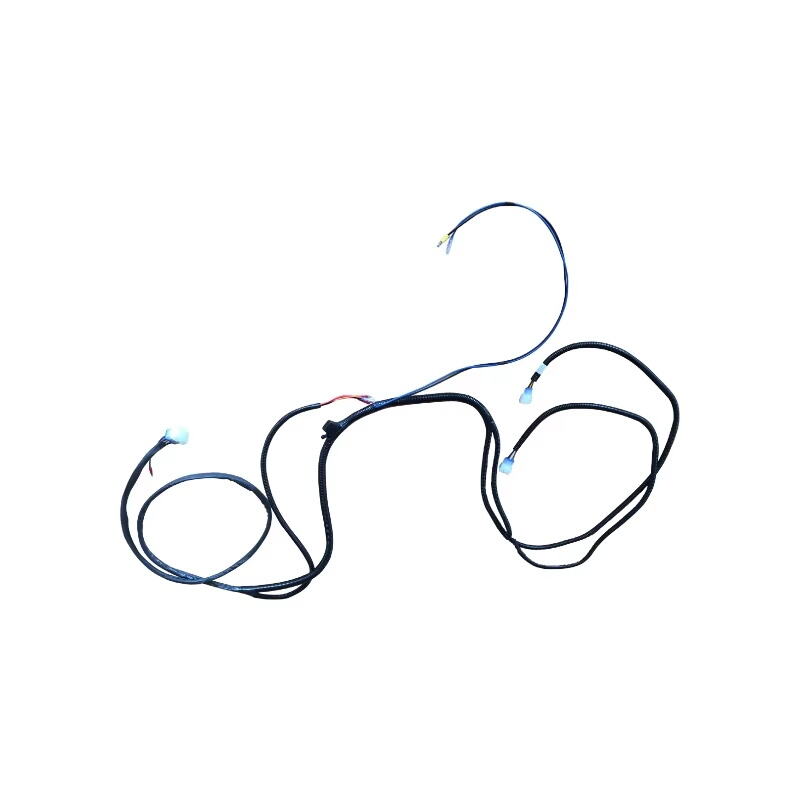Choosing the Right Battery Cable for Your Vehicle
When it comes to maintaining a vehicle's electrical system, one of the most critical components is the battery cable. The battery cable connects your car's battery to the rest of the electrical system, supplying the necessary power for various functions. Choosing the right battery cable is essential for the optimal performance of your vehicle. In this blog, we will discuss how to select the correct battery cable, the factors to consider, and the different types of battery cables available.
The Importance of Choosing the Right Battery Cable
Ensuring Proper Power Supply
The battery cable plays a vital role in ensuring that your vehicle's electrical system receives a consistent and adequate power supply. A poorly chosen battery cable can result in weak connections, power loss, and, in the worst case, failure to start the vehicle. Ensuring that you choose a battery cable with the correct size and specifications will keep your car running smoothly and prevent unnecessary breakdowns.
Avoiding Electrical Issues
An incorrect battery cable can also lead to various electrical problems, such as dim lights, malfunctioning electrical components, or difficulty starting the car. Selecting a battery cable that matches your vehicle's needs is crucial to avoid these issues and protect the electrical integrity of your car.
Types of Battery Cables
Copper Battery Cables
Copper is the most commonly used material for battery cables due to its excellent conductivity. Copper battery cables are known for their ability to transmit power efficiently, ensuring that your vehicle operates at its best. These cables are relatively flexible and durable, making them an ideal choice for most vehicles. However, copper battery cables can be more expensive than other types.
Aluminum Battery Cables
Aluminum battery cables are a more cost-effective option than copper. While aluminum does not conduct electricity as well as copper, it is lighter and less expensive. For vehicles where weight reduction is a priority, or for those on a budget, aluminum battery cables may be a suitable alternative. However, they are more prone to corrosion, which can affect performance over time.
Factors to Consider When Choosing a Battery Cable
Cable Gauge and Size
One of the most important factors to consider when choosing a battery cable is the gauge, or thickness, of the wire. The gauge of the cable determines how much current it can carry. A lower gauge number indicates a thicker cable that can carry more current. For most vehicles, a 4-gauge or 6-gauge battery cable is sufficient. However, for high-performance or heavy-duty vehicles, you may need a thicker gauge to ensure sufficient power delivery.
Cable Length
The length of the battery cable is another important consideration. The longer the cable, the more resistance it will create, which can cause a drop in power. It's important to choose a battery cable that is long enough to connect the battery to the electrical system but not excessively long. Measure the distance between the battery terminals and the vehicle's electrical components to determine the appropriate cable length.

Choosing the Right Battery Cable for Different Vehicles
Standard Vehicles
For everyday cars and trucks, standard battery cables made of copper or aluminum with a gauge size of 4 or 6 should be sufficient. These vehicles typically do not require specialized battery cables, but it's important to ensure that the cables are of high quality and fit properly.
High-Performance Vehicles
High-performance vehicles, such as sports cars and trucks with upgraded electrical systems, may require battery cables with a larger gauge and better conductivity. In these cases, copper battery cables with a lower gauge (such as 2-gauge or 0-gauge) may be necessary to ensure sufficient power is delivered to the engine and electrical systems.
Electric Vehicles (EVs)
Electric vehicles (EVs) have unique power requirements, and as such, their battery cables need to meet specific standards. In an EV, battery cables must be capable of handling high voltages and large amounts of current. When choosing battery cables for an EV, it's crucial to ensure that the cables are specifically designed for the high-voltage systems used in electric vehicles. Many EV battery cables are made from copper for maximum conductivity and durability.
Additional Considerations for Battery Cables
Insulation Material
The insulation around the battery cable is important for protecting the cable from wear and environmental damage. Most battery cables come with rubber or plastic insulation that shields them from heat, moisture, and abrasions. Be sure to choose battery cables with high-quality insulation to prevent short circuits and ensure long-term performance.
Corrosion Resistance
Corrosion can degrade the performance of battery cables over time, especially in environments with high humidity or exposure to road salts. Choosing battery cables with corrosion-resistant features, such as tinned copper or heavy-duty coatings, can help prevent this issue and prolong the life of your cables.
Terminal Connectors
The connectors at the ends of the battery cable are just as important as the cable itself. Choose battery cables with high-quality, secure connectors that fit snugly onto the battery terminals. Loose or poorly connected terminals can lead to power loss and difficulty starting your vehicle.
FAQs About Choosing the Right Battery Cable
How do I know the right gauge for my battery cable?
The right gauge depends on your vehicle’s power needs. For most standard vehicles, a 4-gauge or 6-gauge battery cable is appropriate. High-performance or heavy-duty vehicles may require a thicker gauge for better power delivery.
Can I use aluminum battery cables instead of copper?
Yes, you can use aluminum battery cables, but they are less conductive than copper and may be more prone to corrosion. Aluminum cables are generally more affordable but should be carefully maintained.
How do I maintain my battery cables?
Ensure your battery cables are kept clean and dry. Inspect them regularly for corrosion or damage, especially at the connectors. If you notice wear, replace the cables promptly to avoid electrical issues.
Are there specific battery cables for electric vehicles?
Yes, electric vehicles require battery cables that can handle high-voltage systems and large currents. Copper battery cables are typically used in EVs for maximum conductivity and durability.
Table of Contents
- Choosing the Right Battery Cable for Your Vehicle
- The Importance of Choosing the Right Battery Cable
- Types of Battery Cables
- Factors to Consider When Choosing a Battery Cable
- Choosing the Right Battery Cable for Different Vehicles
- Additional Considerations for Battery Cables
- FAQs About Choosing the Right Battery Cable

